On Thursday, several large websites in Europe showed their users warning screens instead of their regular websites. They did this to protest the European Union’s new plan for copyright laws.
Copyright laws are meant to protect the work of artists and other people who create something. When someone creates a work of art – a book, movie, or song, for example – it is protected by copyright. That keeps other people from using it without permission and helps make sure that artists can earn money from their work.
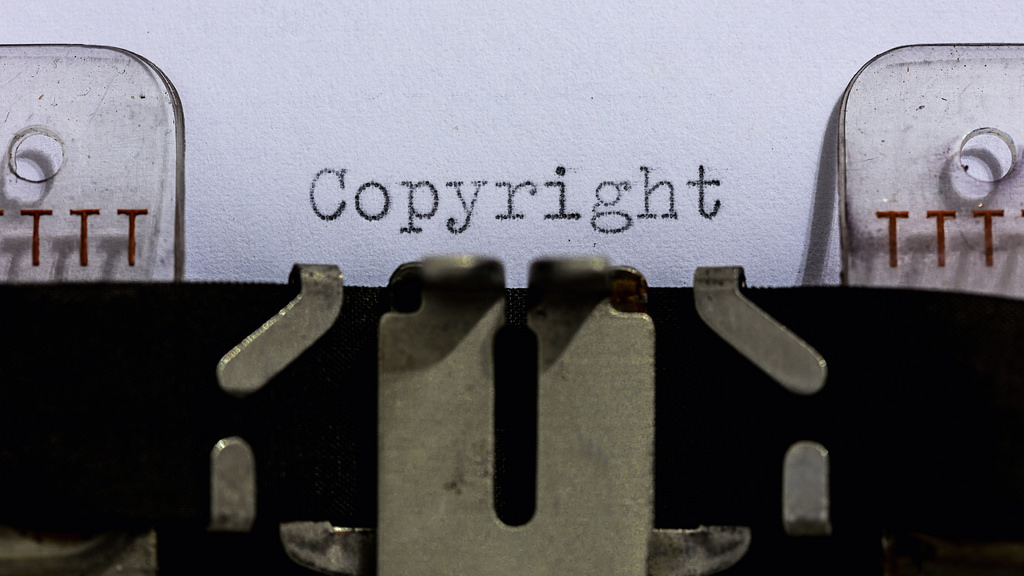
(Source: Dennis Skley, via Flickr.com.)
Before the internet, it was easier to make sure people followed copyright laws. Copying something in real life takes effort. But computers and the internet make it easy to create and share electronic copies of protected works.
These days it’s common for brand-new movies, TV shows, books, and songs to be shared on the internet for free by someone who didn’t create them. These “pirated” works can make artists and the companies that sell their work lose money.
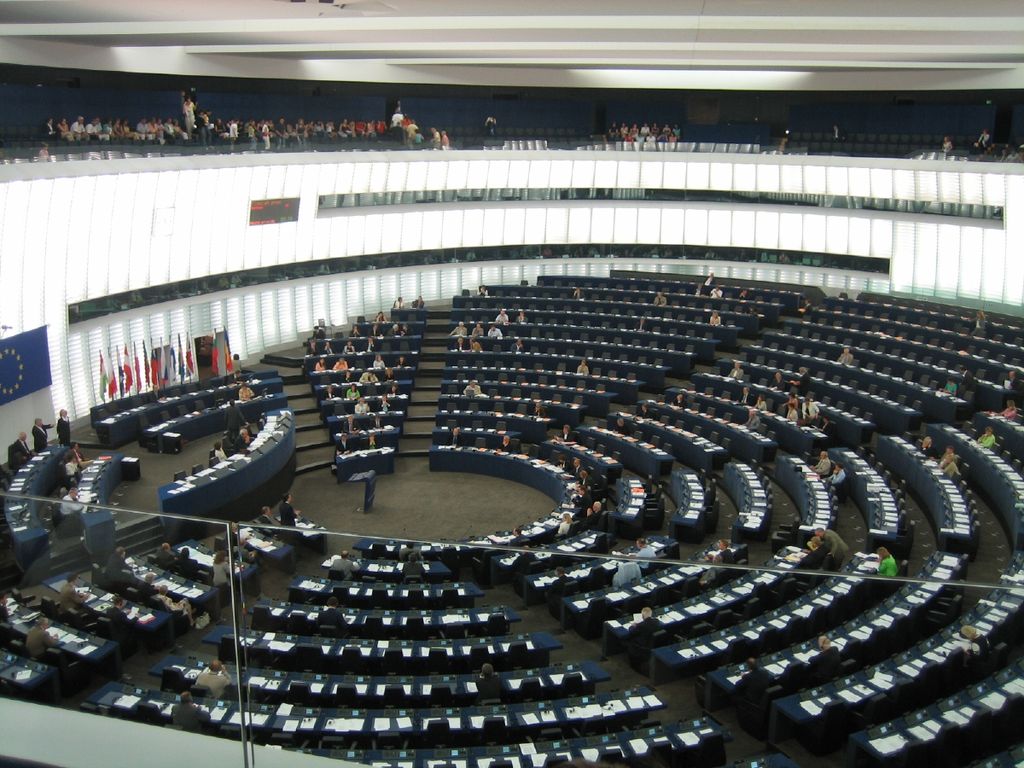
(Source: JLogan, via Wikimedia Commons.)
In 2016, the European Union (EU) decided to update its copyright laws to deal with these kinds of problems. Many people liked this idea. They thought it would help protect the work of artists and save money for businesses.
Now the European Parliament is getting close to voting on a new “copyright directive”. The directive is not a law, but it will help shape the laws for all EU countries.
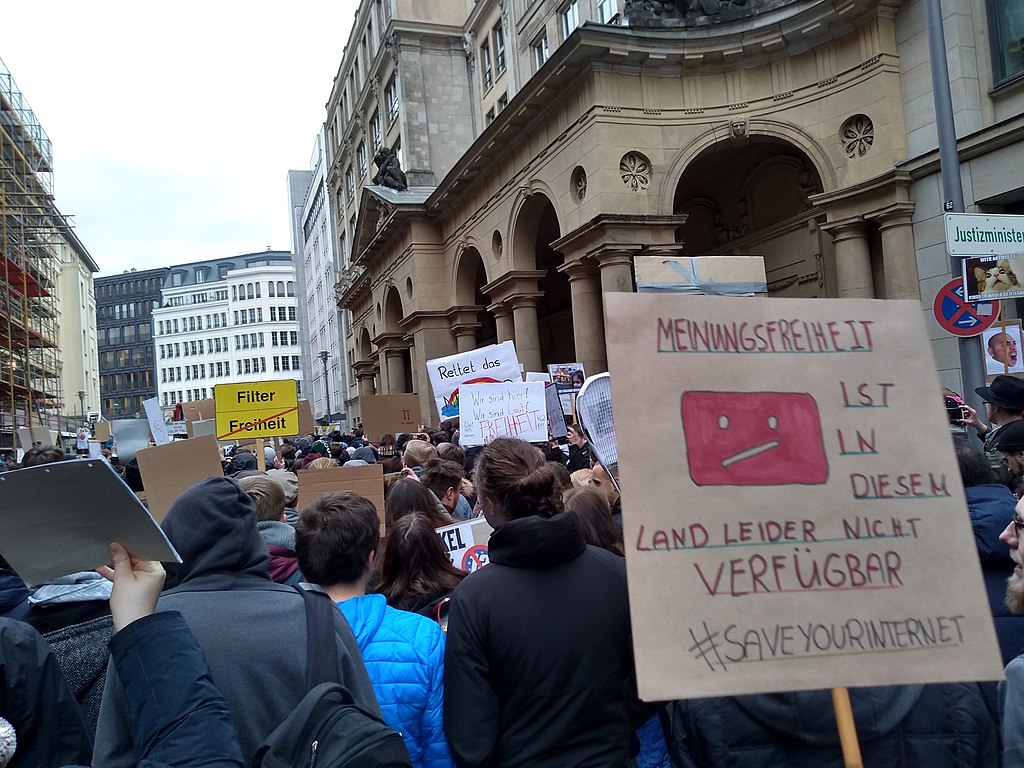
(Source: Lucas Werkmeister [CC BY 4.0], via Wikimedia Commons.)
But many people want to stop the new directive. They believe the new rules will make it impossible for people to share almost anything on the internet. They say there are many kinds of sharing that aren’t pirating.
That’s why several large European websites “went black” yesterday. They wanted to show users what the internet might be like if the EU’s copyright directive is passed.
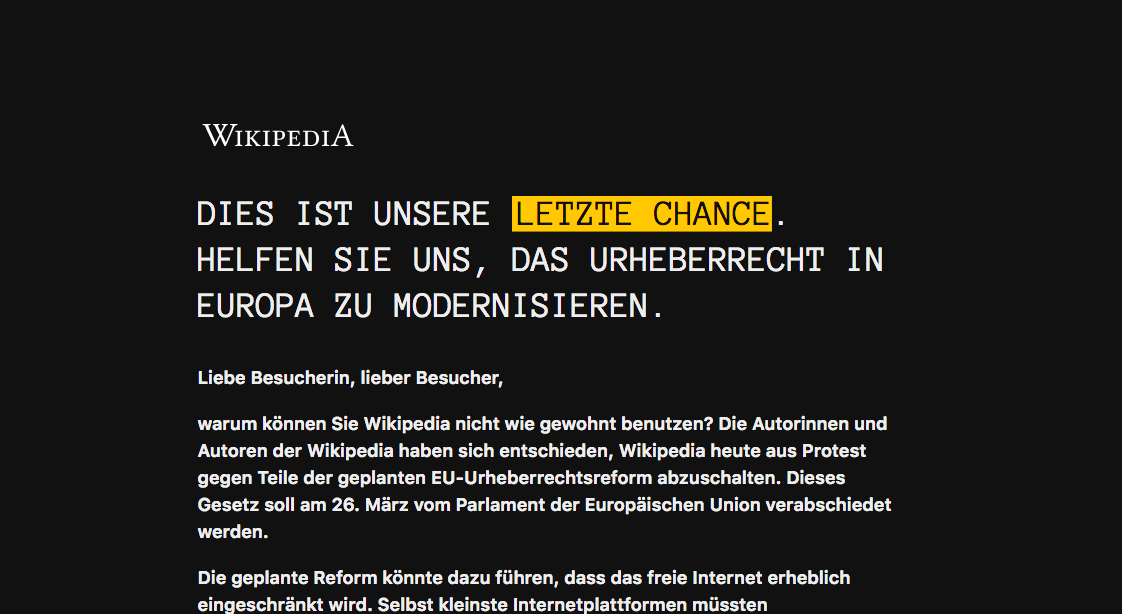
(Source: Screenshot German Wikipedia.
Many of the complaints are about a part of the directive called Article 13. Article 13 says websites can’t allow anything to be added to their sites that they don’t have the right to display.
That may sound simple, but it gets complicated quickly. Almost anything could be protected by copyright. How can websites get the rights to everything that users might upload?
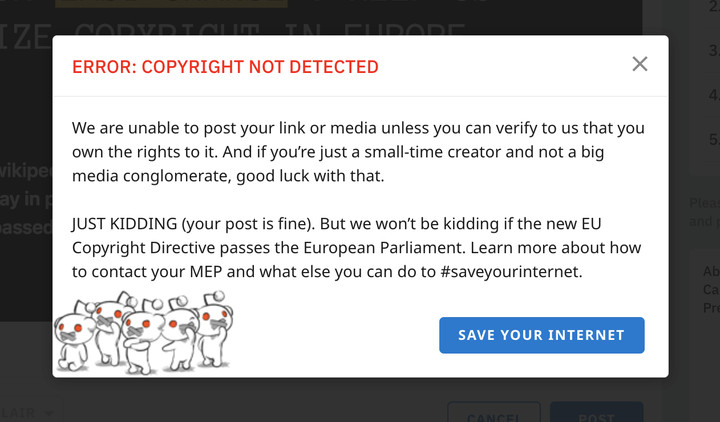
(Source: Redditblog.com.)
Websites that create all of their own content (words, pictures, or videos, for example), might not have a problem. But many websites like Wikipedia, and most social media sites , count on users adding content. Many people worry that the EU’s new directive will put websites like these out of business.
Some people say websites can use computers to check the content that people add. Many big sites, such as YouTube, Twitter, and Facebook already use powerful computer tools to check much of the content their users upload.
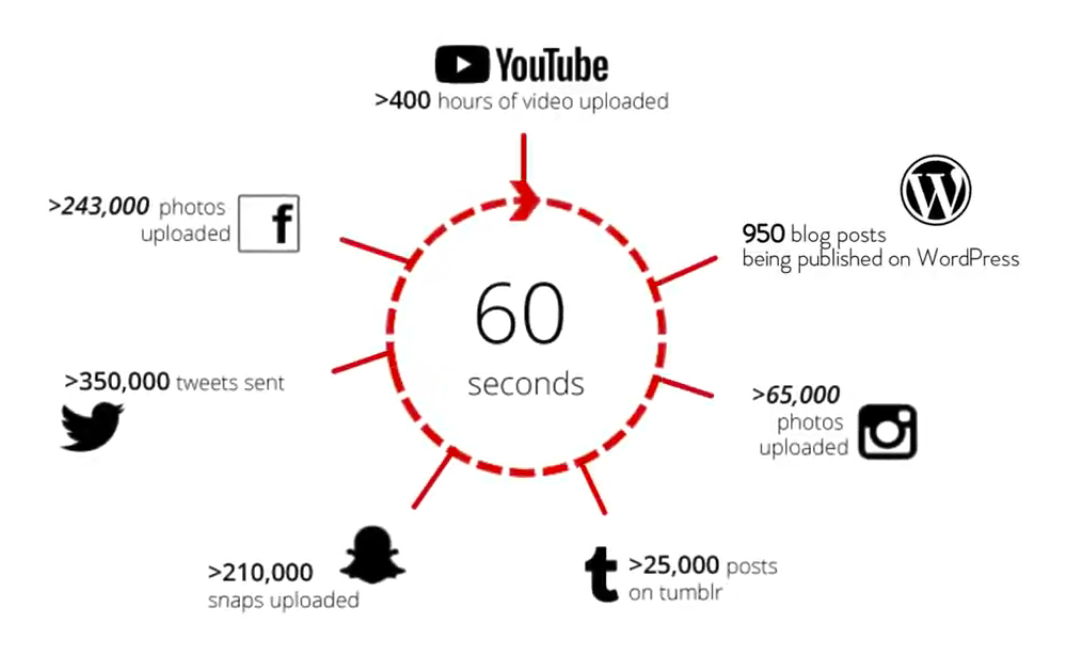
(Source: Screenshot https://saveyourinternet.eu/.)
But these are big companies. Smaller websites run by a small team or just one person can’t possibly check everything that anyone uploads. These sites would either have to stop letting users add content, or simply close down.
More protests against the copyright directive are planned in many cities across Europe for Saturday, March 23.
